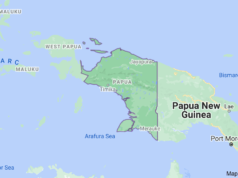

“We will collect samples and conduct lab tests to prove Cadbury’s compliance,” Roy Alexander Sparingga, the head of Indonesia’s Food and Drugs Monitoring Agency (BPOM) was quoted as saying in Jakarta Globe on Friday.
The report over the weekend that traces of porcine DNA had been found in two products sold by Cadbury in Malaysia — Dairy Milk Hazelnut and Dairy Milk Roasted Almond — has sparked similar public concern in Indonesia.
Indonesians have taken to social media to note that the same chocolate varieties can be found here as well, although Roy said they were not officially registered with BPOM, the body authorised to monitor packaged food products.
“There are only 10 variants of Cadbury chocolate that have obtained halal certification from the MUI (Indonesian Council of Ulama),” he said.
Cadbury’s Dairy Milk Hazelnut was previously registered with BPOM, he said, but the registration had since expired while Cadbury’s request to have its Dairy Milk Roasted Almond distributed here had not been approved.
“If any of those products are found in Indonesia it’s safe to assume they entered the market illegally,” Roy said.
He said all imported food products must obtain an import notification letter issued by BPOM before it could enter the market.
“As of today, we haven’t issued any such notification for those variants of chocolates,” he said.
Roy also noted that halal testing in Indonesia was voluntary and that producers who wanted their products to be labelled as such could apply for a test by MUI’s Food, Drug and Cosmetics Assessment Agency (LPPOM), which is the
only body in the country currently authorised to issue halal certification.
“However, the producers still have the obligation to inform consumers (about the non-halal content) by putting that information on the label.
“Despite the scare, I urge the public not to worry because I have instructed all provincial offices of BPOM to check if those products are distributed in our markets,” he added.
— BERNAMA










